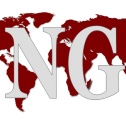by Octavia Moise –
![]() The NATO Brussels Summit started with great expectations regarding the solidarity of the member states and their efforts to strengthen the defense and deterrence posture, given the fact that “we are in a very, very grave period” as Henry Kissinger, former US Secretary of State stated this month.
The NATO Brussels Summit started with great expectations regarding the solidarity of the member states and their efforts to strengthen the defense and deterrence posture, given the fact that “we are in a very, very grave period” as Henry Kissinger, former US Secretary of State stated this month.
UK’s Brexit preoccupations, Angela Merkel’s struggle to remain chancellor, Recep Tayyip Erdoğan’s authoritarianism were on the list of worries of European leaders. And there are also numerous voices arguing that USA, the guardian of the liberal world order is attacking the order it has created, or at least it stops defending it from the main challengers, Russia and China. Lord Ismay, NATO’s first secretary General described the organizational principles of the alliance through a well-known metaphor “keep the Soviet Union out, the Americans in and the Germans down”, but now, the fact that the American protection doesn’t seem reliable anymore comes as a shock for many. Trump might be rude, but he might be wright when he questions whose interests are more jeopardized and who is willing to do something about it, referring to a Russian interference which is more likely in neighboring countries than in Alaska, in the opinion of many US analysts. The US president Donald Trump shocked the audience when he requested European Allies to double their defense spending and accused Germany of buying gas from Russia, being captive of Russia, while USA defends Germany from Russia.
After the first day of the Summit, when these declarations overwhelmed the agenda, specific decisions were approached. In principle, the Allies decided they will continue to pursue the 360 degrees approach to their indivisible security encompassing the three main tasks stated in the Strategic Concept: collective defense, crisis management and cooperative security. More specifically, they simplified the procedures in order to improve troops mobility by land, air or sea, as soon as possible but no later than 2024, and to address the military paradigm shift identified during previous Summits. The Allies decided also to multiply capabilities, establishing the Four 30’s initiative – a full range of munition ready to be deployed in less than 30 days.
During the Summit the allies acknowledged the new types of threats and even the irregular migration and other consequences of the Syrian crisis that affect their stability and security, and underlined the need to respect the 2% defense spending target. In respect with migration, many debates were triggered by the affirmations of the US President Donald Trump that stated during an unscheduled press conference that he agrees with Italy’s anti-immigration government leaded by “Giuseppe” – he referred to the Italian prime minister using only his first name. As far as the global fight against terrorism is concerned, NATO stated its commitment to engage, underlying the role of partnerships in this respect
Regarding the NATO Russia relations, the decisions taken at Wales and Warsaw were maintained, Russia’s interference in national electoral campaigns and hybrid actions of disinformation campaigns were condemned, but unlike during the previous Summits, the role of political dialogue was emphasized through the statement “NATO does not seek confrontation and poses no threat to Russia”. Though, for the first time, NATO requested directly to Russia to withdraw its troops from Republic of Moldova, Ukraine and Georgia. To address the hybrid threats, Counter Hybrid Support Teams were established, that can assist states by their request.
The enhanced Forward Presence encompasses four multinational combat-ready battalion-sized battlegroups in Estonia, Latvia, Lithuania, and Poland, and the Multinational Division North East Headquarters that will be completed by December 2018. The tailored Forward Presence in the Black Sea area encompasses a multinational framework brigade in Romania, which is an achievement but still doesn’t equals the enhanced Forward Presence in the North of the Eastern Flank, as many voices call for a unitary approach for the region. These two concepts were developed after Russia’s aggressive behavior in Ukraine as reassurance measures for the Eastern Allies and deterrence measures for Russia.
Another formal achievement of the Summit is the signature by the NATO Secretary General, the President of the European Council, and the President of the European Commission of the NATO EU cooperation Joint Declaration, that diminishes the claims of duplication in terms of security and defense efforts by the two international organizations but still doesn’t’ state specific actions.
Regarding Italy’s representation at the NATO Brussels Summit, the Alliance took note of the Italian offer of a Divisional Headquarters based on rotational basis, to support the activities needed through the enhanced Framework for the South. It is known that Italy has encouraged increased NATO presence in Europe’s Southern neighborhood, that led to the establishment of the hub for the South. Also, Italy is one of the seven Allies than decided during this summit to acquire maritime munitions together in order to lower costs. Although many voices in Italy question the role of NATO, the country has an important role especially in the Southern Flank, where it involves through initiatives and concrete measures as the hub for the South.
Despite all worrisome political declarations, USA Senate representatives attending the Summit underlined the American commitment to Trans-Atlantic security that is proven by the increasing presence of American soldiers and capabilities in Europe and in its neighborhood.
The Trans Atlantic Partnership is in trouble and in my opinion is dangerous to throw away this degree of mutual protection in such a dangerous XXI century, not only for Europe, but even for American power itself, as values and a strong network of allies are ones of the important sources of American power, together with military and economic power.
Some of the most important conclusions:
– NATO faced a contentious summit characterized by discord between Washington and its European allies. Donald Trump on the possibility of pulling out of NATO : “I think I probably can, but that is unnecessary. They have stepped up today like they have never stepped up before”.
– NATO has pledged a commitment to “fair burden-sharing”. In this respect, Angela Merkel affirmed that “The American president demanded, what has been discussed for months, a change in the burden-sharing,” and she recognized that Germany “must do more.”
– NATO invited Macedonia to begin membership talks.
– UK maintains its commitment to NATO despite Brexit. British Prime Minister Theresa May stated on July 11 that Great Britain will almost double its forces in Afghanistan.
– NATO Secretary General Jens Stoltenberg stated that NATO is now “more united than before the summit” due to an “open and frank discussion”.













